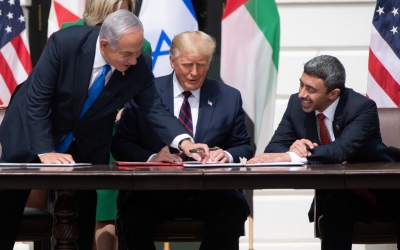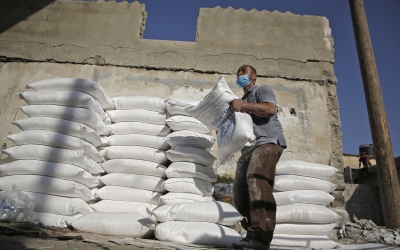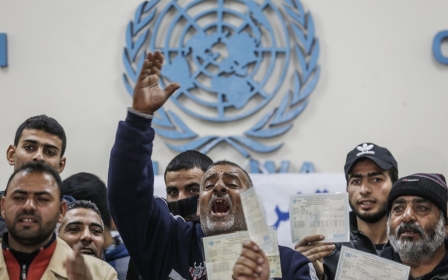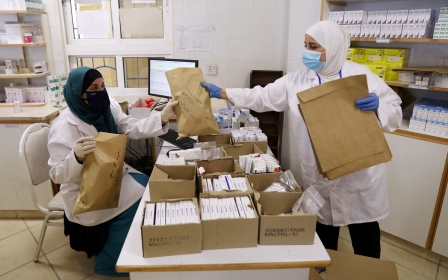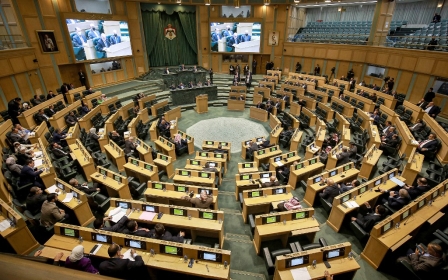Arab ties with Israel should not impede aid to Palestinians, UNRWA chief says
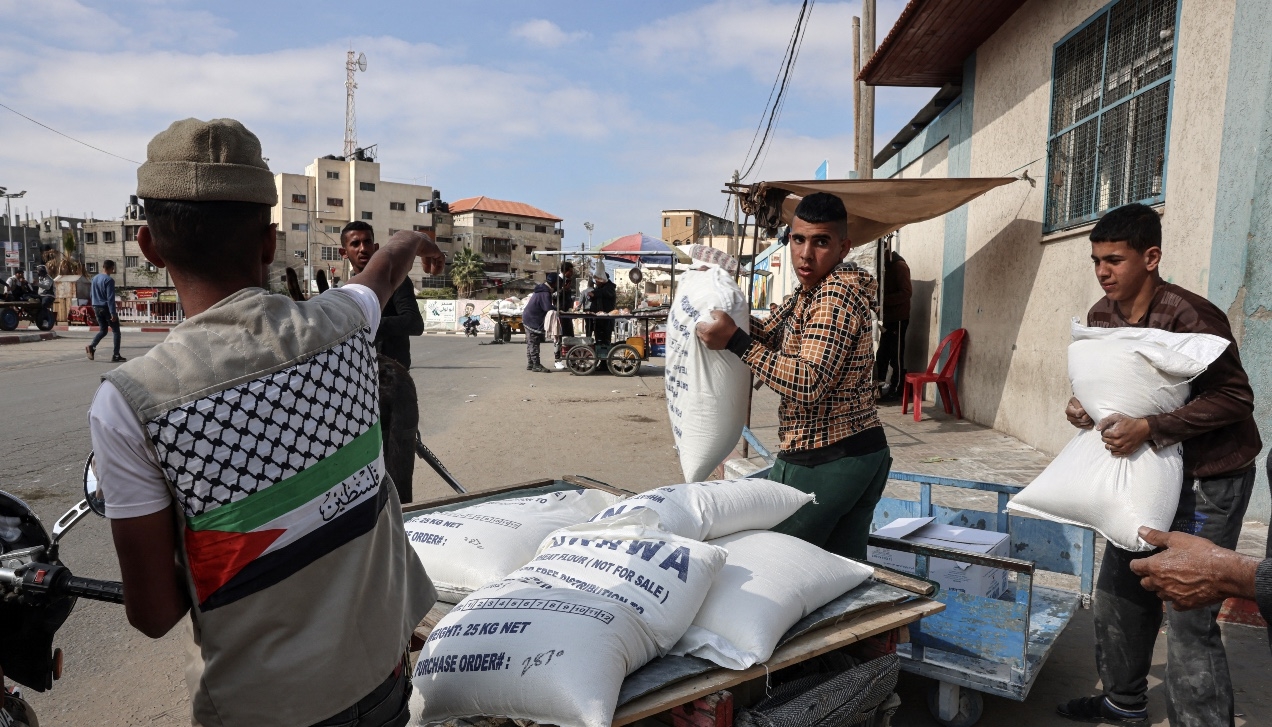
The head of the UN agency for Palestinian refugees said on Tuesday that Arab countries' rapprochement with Israel should not pose an obstacle to their funding of the organisation.
"You can have strong bilateral relations with Israel and be a strong supporter of the agency,” UNRWA chief Philippe Lazzarini told Reuters.
The comments come as UNRWA - which provides services to nearly six million Palestinians registered in the Palestinian territories, including Israeli-annexed East Jerusalem, as well as in Jordan, Lebanon and Syria - warns that "compounding challenges" have placed it under "immense strain”.
Last year, it raised less than $1.2bn of the $1.6bn it had appealed for, Lazzarini said.
"It is true that in 2022, we succeeded to keep all our services running for the Palestinian refugees," he said, adding though that it "came at a cost, at a very high cost".
"For the fourth consecutive year, we are ending with a large deficit of above $70 million."
'Tipping point'
The UAE, Bahrain and Morocco established official relations with Israel as part of the US-brokered Abraham Accords in 2020, and have since signed trade and economic agreements with Israel.
Lazzarini said that Arab countries should translate the solidarity they often express with the Palestinians "into tangible and substantial resources to UNRWA".
In 2018, Arab countries represented 25 percent of the agency's budget, but their share shrunk to three percent in 2021 and four percent last year, he pointed out.
"Whatever rapprochement or ties [with Israel] should not have the slightest impact on your commitment and your solidarity with the Palestine refugees and your support to an agency like UNRWA. We should not be the proxy or byproduct of any political considerations," he said.
The agency warns that its needs have been skyrocketing as global crises, inflation and disruptions in global supply chains contribute to surging poverty and unemployment levels among Palestinians. Yet donors have been reluctant to boost funding levels.
The plea comes as Gulf states have boosted cash injections to struggling neighbours like Egypt and Pakistan. However, they have increasingly looked for investments, as opposed to direct aid.
Saudi Arabia’s Finance Minister Mohammed al-Jadaan said at the World Economic Forum in Davos Switzerland that Riyadh’s days of blank cheque writing to allies were over.
“We are changing the way we provide assistance and development assistance,” he said. “We are working with multilateral institutions to actually say we need to see reforms.”
Lazzarini said that more than 70 years after its founding, the agency desperately needed "a more sustainable model of funding".
"We cannot and should not be always scrambling to bring in funds to cover our contribution to human rights and stability."
He warned that UNRWA was in "a danger zone" and risked reaching "a tipping point".
That "would most likely lead to the suspension of activities, which in such a volatile region ... is certainly not the best recipe".
Middle East Eye delivers independent and unrivalled coverage and analysis of the Middle East, North Africa and beyond. To learn more about republishing this content and the associated fees, please fill out this form. More about MEE can be found here.


